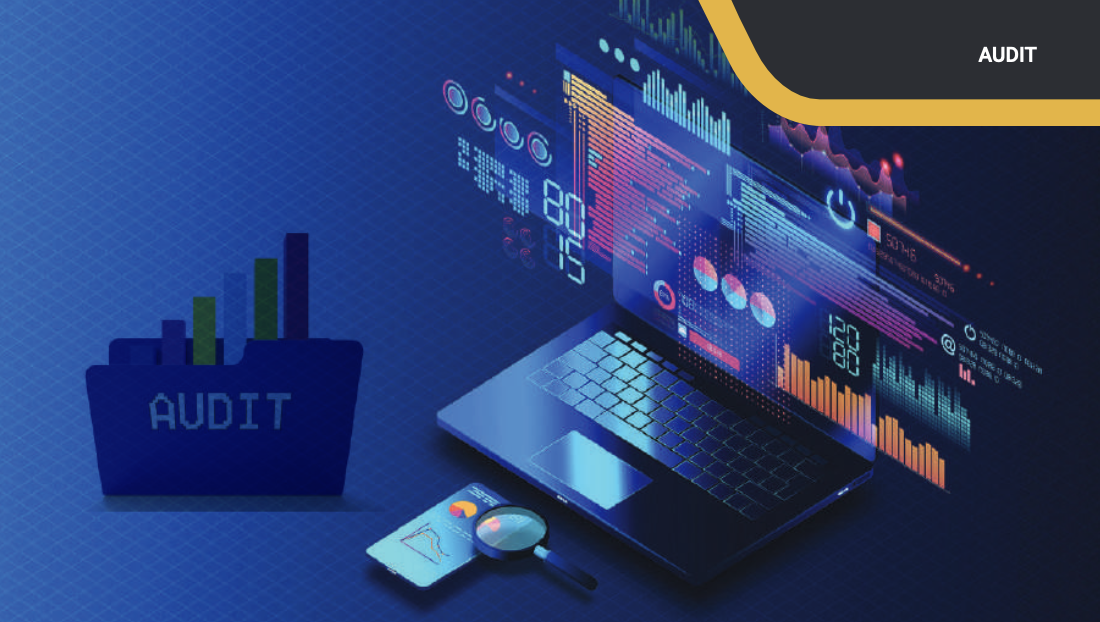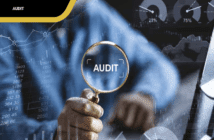By: CPA Meshack Mutinda Mulei
Exploring the Evolving Role of Auditors in a Technology-Driven World
In today’s rapidly evolving technological landscape, auditors face the challenge of adapting to the digital era. The traditional methods of conducting audits are being transformed by innovative technologies, such as data analytics and artificial intelligence (AI).
This article delves into the evolving role of auditors in a technology-driven world, focusing on the utilization of data analytics in audits, the application of AI in risk assessment, and the potential impact of emerging technologies on the audit profession.
Data Analytics in Audits: Data analytics has emerged as a game-changer in the field of auditing, providing auditors with unprecedented access to vast amounts of structured and unstructured data. By harnessing the power of data analytics tools and techniques, auditors can extract valuable insights from financial records, transactional data, and other relevant sources. These insights enable auditors to identify patterns, anomalies, and potential risks more effectively, thereby enhancing the overall quality and reliability of audit engagements.
For example, auditors can leverage data visualization tools to analyze financial data in real-time, allowing them to identify trends, irregularities, or suspicious activities. Additionally, advanced analytics techniques, such as predictive modeling, can assist auditors in identifying areas of potential financial misstatements or fraudulent activities.
According to a survey conducted by the Association of International Certified Professional Accountants (AICPA), 78% of auditors believe that data analytics will significantly impact the audit profession in the next three to five years (AICPA, 2021).
Artificial Intelligence in Risk Assessment: Artificial intelligence is revolutionizing risk assessment within the audit process. Through the utilization of AI algorithms and machine learning capabilities, auditors can enhance risk identification, assessment, and mitigation strategies. AI-powered systems can analyze vast volumes of data, identifying patterns and detecting anomalies more accurately and efficiently than traditional methods. This empowers auditors to focus their efforts on areas of higher risk, thereby improving audit quality and effectiveness.
For instance, AI-driven tools can automatically analyze financial statements, identify potential fraud indicators, and perform risk scoring. Moreover, natural language processing (NLP) algorithms can extract relevant information from unstructured data sources, such as contracts or legal documents, providing auditors with valuable insights and reducing manual effort.
A study conducted by Deloitte found that 82% of audit executives believe that AI will significantly impact how audits are conducted in the next few years, enabling auditors to deliver deeper insights and higher-value services (Deloitte, 2022).
Impact of Emerging Technologies: Beyond data analytics and AI, emerging technologies have the potential to reshape the audit profession. Innovations like robotic process automation (RPA), blockchain, and cloud computing offer new possibilities for auditors.
RPA can automate repetitive manual tasks, freeing up auditors’ time for more strategic and analytical activities. This technology streamlines data extraction, validates information, and performs reconciliations, reducing human error and increasing audit efficiency.
Blockchain technology can enhance audit trail transparency and accuracy by providing a decentralized and immutable record of transactions. Smart contracts executed on blockchain platforms automate audit procedures, ensuring compliance and enhancing trust between auditors and auditees.
Cloud computing enables auditors to access and analyze data remotely, collaborate with clients in real-time, and securely store audit documentation. This enhances audit efficiency, reduces time and resource constraints, and facilitates seamless communication between auditors and clients.
According to a study by PwC, 94% of CEOs in the financial services industry believe that emerging technologies, including blockchain and AI, will have a significant impact on audits and other assurance services in the next five years (PwC, 2021).
Benefits and Disadvantages
The adoption of technology in auditing brings both benefits and disadvantages. Some of the benefits include:
Enhanced Audit Quality: Technology-driven approaches enable auditors to perform more comprehensive and accurate analyses, resulting in higher-quality audit engagements.
Increased Efficiency: Automation of repetitive tasks reduces manual effort, allowing auditors to focus on higher-value activities and allocate resources more effectively.
Improved Risk Assessment: Advanced analytics and AI techniques improve risk identification and assessment, enabling auditors to target areas of higher risk and allocate resources accordingly.
However, there are also potential disadvantages to consider:
Skill Requirements: Auditors must acquire new skills and competencies to effectively utilize technology tools and understand their limitations.
Data Privacy and Security: Increased reliance on technology exposes auditors to potential cybersecurity risks and challenges related to data privacy.
Ethical Considerations: The use of AI and emerging technologies raises ethical questions concerning data governance, privacy, and potential biases within algorithms.
Embracing Technology: The Case of Auditors in Kenya: For auditors in Kenya, embracing technological innovations is crucial to stay ahead in a rapidly evolving business environment. By leveraging data analytics tools, auditors can gain deeper insights into financial transactions, identify potential risks, and provide valuable recommendations to clients. Furthermore, the adoption of AI and emerging technologies can enhance audit efficiency, accuracy, and effectiveness, enabling auditors to deliver higher-quality assurance services.
To embrace technology, auditors in Kenya can:
Invest in Training: Continuous professional development programs focused on technology skills can equip auditors with the necessary knowledge to leverage data analytics tools and understand AI applications.
Collaborate with Technologists: Collaboration between auditors and technology experts can facilitate the development and implementation of innovative audit methodologies and tools.
Strengthen Data Governance: Auditors must ensure robust data governance practices to address data privacy and security concerns associated with technology utilization.
Promote Ethical Guidelines: Auditors should actively engage in discussions regarding the ethical implications of technology adoption and contribute to the development of industry-wide ethical guidelines.
Conclusion:
Audit innovations driven by technology are reshaping the role of auditors in the modern business landscape. Data analytics, AI, and emerging technologies offer auditors unprecedented opportunities to enhance audit quality, improve risk assessment, and deliver valuable insights to stakeholders. However, auditors must carefully navigate the potential benefits and disadvantages of technology adoption and continuously update their skills to embrace the evolving landscape of the audit profession. By doing so, auditors in Kenya can position themselves as trusted advisors, leveraging technology to deliver impactful and reliable assurance services.
CPA Mulei, MBA, Bcom, CISA




